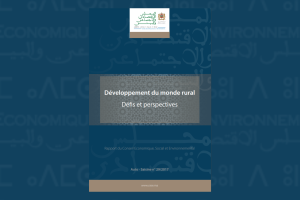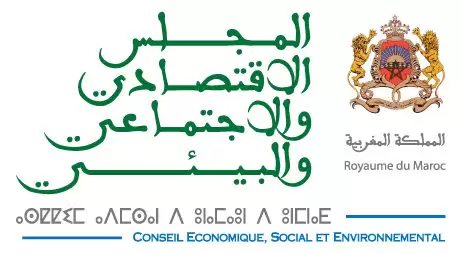
ASR-C7-032016-29-6588-ar
Major advances in the development of rural areas across the country have been made over the past decade, more specifically as part of the INDH (National Human Development Initiative) and the “Plan Maroc Vert” (Green Morocco Plan) programs. The results obtained from the Council’s report on the matter mention the higher level of accessibility of the rural population to education, water supply, electrification, equipment and other services. The other equally significant achievement, the CESE points out, is the unlocking of rural communities’ connectivity and the growth of value added in agriculture.
However, the impact of rural development programs and projects remains below local communities’ expectations and needs. The illiteracy rate is still high, especially for girls, and poverty and instability are particularly prevalent in the rural parts of the country, especially in mountains and secluded countryside locations, where the lack of infrastructure brings poor access to economic, social, educational and other basic services.
In its report on the matter, the CESE explores the multitude of challenges at hand and gives a set of recommendations.
Major advances in the development of rural areas across the country have been made over the past decade, more specifically as part of the INDH (National Human Development Initiative) and the “Plan Maroc Vert” (Green Morocco Plan) programs. The results obtained from the Council’s report on the matter mention the higher level of accessibility of the rural population to education, water supply, electrification, equipment and other services. The other equally significant achievement, the CESE points out, is the unlocking of rural communities’ connectivity and the growth of value added in agriculture.
However, the impact of rural development programs and projects remains below local communities’ expectations and needs. The illiteracy rate is still high, especially for girls, and poverty and instability are particularly prevalent in the rural parts of the country, especially in mountains and secluded countryside locations, where the lack of infrastructure brings poor access to economic, social, educational and other basic services.
Recommendations:
In its report on the matter, the CESE explores the multitude of challenges at hand and gives the following recommendations:
- Develop a concerted framework law on a first phase, and later on design a rural code.
- Develop a participatory national vision for the medium and long-term development of rural areas in the country, while integrating human, economic, social, environmental and cultural considerations.
- Organize national and regional meetings that bring together diverse stakeholders (state departments, NGOs, local elected representatives, MPs, and leading figures from across the worlds of business, association and academia) to deliberate on the said participatory national vision, enrich it with their wisdom and propose a clearly defined action plan shared by the State and local authorities (region, province, rural commune).
- Initiate an in-depth legal land reform to respond to growing concerns about rural development, particularly as regards the fragmentation of rural landscapes, expansive urban growth, demographic shifts and social changes.
- Deliver on the National Administration Deconcentration Charter, while making it a priority to establish the national steering committee for advanced regionalization, as previously recommended by the CESE.
- Develop and implement in each region, and within a reasonable timeframe, a Development Plan for each rural area according to size, population and proximity to urban areas (cities and towns).
- Make the gender mainstreaming approach an effective part of rural development policy and take positive measures to empower rural women, in a bid to remove structural and cultural obstacles and eradicate discriminatory practices.
- Provide more direct and stronger support to local actors and rural communities by strengthening their action capacities.
- Improve accessibility to the road network in rural areas, especially in remote regions, and optimize the resources and efforts of all parties involved.
- Foster a dynamic rural economy through:
- Introducing incentives to encourage the setting up of units for value-added agricultural products in rural areas.
- Encouraging and integrating initiatives to promote territorial rural tourism and rural crafts production.
- Promoting cultural and sports activities in rural areas.
- Accelerate the implementation of Morocco’s strategy addressing development in rural and mountain zones (adopted in July 2015).
- Integrate environmental goals into rural development policy and systematize environmental impact assessment studies for all rural development projects, towards rational, sustainable and forward-looking management of underexploited and sometimes even poorly managed natural resources.
